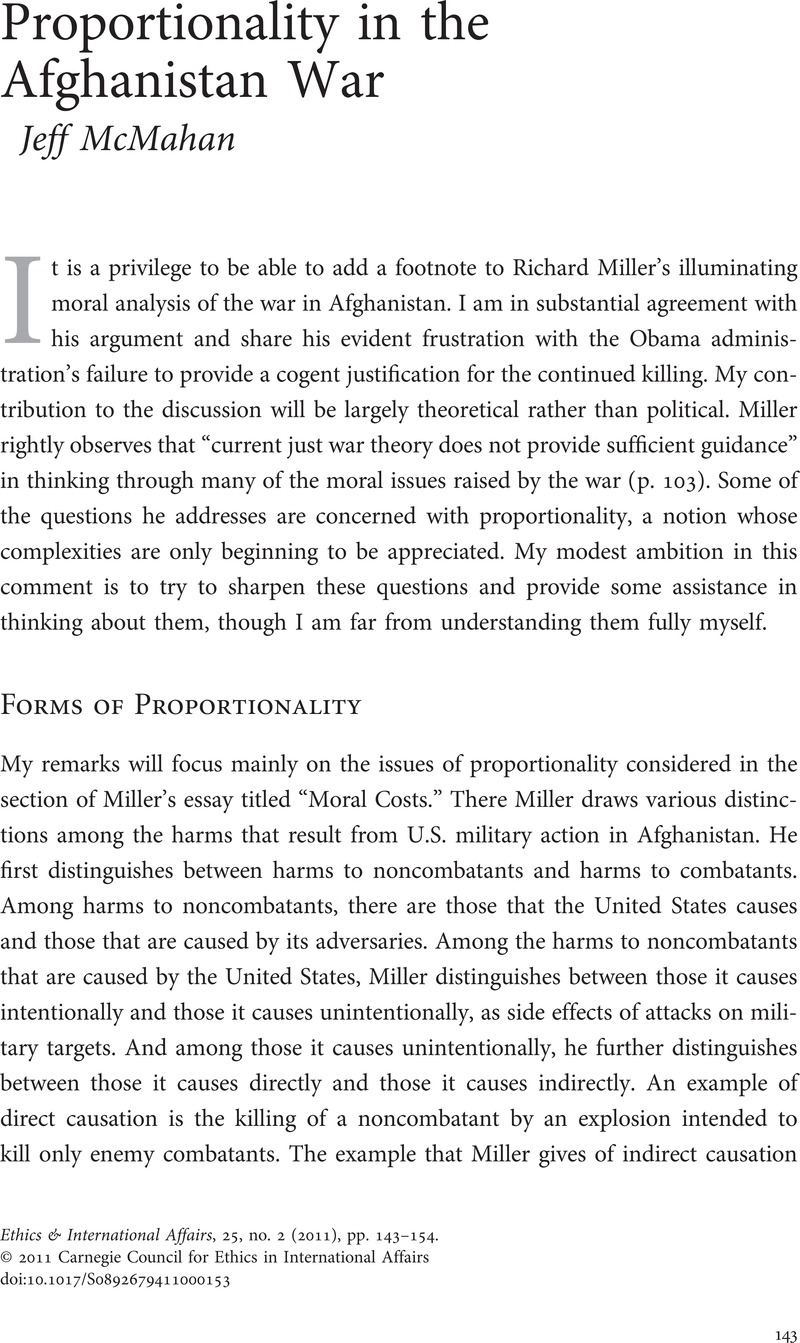Article contents
Proportionality in the Afghanistan War
Published online by Cambridge University Press: 30 June 2011
Abstract

- Type
- Symposium
- Information
- Copyright
- Copyright © Carnegie Council for Ethics in International Affairs 2011
References
NOTES
1 McMahan, Jeff, Killing in War (Oxford: Clarendon Press, 2009), pp. 38–51CrossRefGoogle Scholar.
2 This presupposes, controversially, that status as a just or unjust combatant cannot depend on whether one's war is proportionate. For assessments of narrow and wide proportionality depend on a prior determination of the status of combatants.
3 This is the guideline we advocate: Conduct your war in the presence of noncombatants on the other side with the same care as if your citizens were the noncombatants.” Margalit, Avishai and Walzer, Michael, “Israel: Civilians and Combatants,” New York Review of Books 56, May 14, 2009, p. 22Google Scholar.
4 The Christian pastor Terry Jones has said that “we knew that they might act with violence,” but also says that even now that he knows the actual consequences, he would still do it again. Alvarez, Lizette, “Koran-Burning Pastor Unrepentant in Face of Furor,” New York Times, April 2, 2011Google Scholar.
5 Bohannon, John, “Counting the Dead in Afghanistan,” Science 11 (March 2011), pp. 1256–60CrossRefGoogle Scholar.
6 I say more about this, and about the claims in the following paragraph, in “What Rights May We Defend by Killing?” in Fabre, Cécile and Lazar, Seth, eds., Why We Fight: The Purposes of Military Force in the 21st Century (Oxford: Oxford University Press, forthcoming)Google Scholar.
- 7
- Cited by


